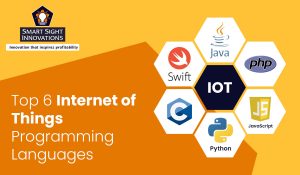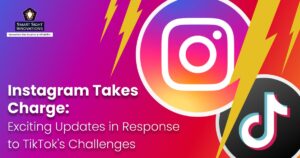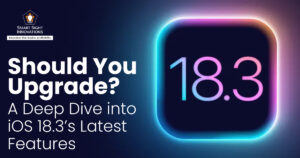 Summary- Unarguably, the internet of things is the next big thing in the IT sector. Most developers and tech gurus have already started focusing on learning new skills. Knowing about open-source programming languages for IoT is essential. Developers want to be ahead of the competition by upgrading to stay relevant in the future and their careers. While there are many popular languages that already dominate the IoT space, learning about different languages helps.
Summary- Unarguably, the internet of things is the next big thing in the IT sector. Most developers and tech gurus have already started focusing on learning new skills. Knowing about open-source programming languages for IoT is essential. Developers want to be ahead of the competition by upgrading to stay relevant in the future and their careers. While there are many popular languages that already dominate the IoT space, learning about different languages helps.
There are many languages and it can be daunting to decide which one to choose. Are you confused about a programming language to use for your IoT projects? Selecting a language for an IoT project can be facilitated if you know about the top programming languages that are best for a project. The growing demand for IoT-based applications calls for the best IoT software development through experts.
-
Java
Where IoT app development is concerned, Java is the most dominant language in the market. From 2019 onwards, it was the most popular programming language with an overall rating of 16%. This programming language is known to operate about three billion devices.
So why is Java so prominent? It is because of its Code-Once-Run-Anywhere function. It means developers can code their app once and run it on any device, from a cell phone to the simplest devices compatible with this programming language.
Besides, Java is object-oriented and allows you to develop apps for both cloud and edge nodes. The interoperable functionalities and extensive libraries make Java an ideal programming language for IoT development.
The advantages of Java include:
- Developers can build and debug code on their desktops and then move it to any chip with a Java Virtual Machine (JVM)
- The code can run in places where JVMs are common and can also run on small machines.
- It has incorporated coding techniques from languages such as Mesa, Eiffel, C, and C++.
- The built-in capabilities make it portable with minimal hardware dependencies.
- Java has hardware support libraries that can access a common code.
-
PHP
This language may be the first choice for bloggers and website prototypers and is surprisingly popular in IoT. PHP is a language that is mentioned most often by developers.
It is a server-side scripting language, which states that applications written on it run on a web server and do not depend on an online browser. The syntax of PHP language is similar to that of C language.
PHP has significant advantages
- It is open-source and free of cost.
- Easily downloaded from anywhere and is available to use for positioning web applications.
- This platform is free.
- A PHP-based application can run on any OS such as UNIX, Linux and Windows, etc.
Applications based on PHP and connected to the database can be easily uploaded. It is primarily in use because of its faster rate of loading at slower internet speeds than any other programming language. It has a low learning curve as it is simple to use. Anyone familiar with C programming can work on PHP.
-
JavaScript
According to reports, JavaScript was the most popular programming language in 2018 with 9.7 million developers using the language.
JavaScript is used as a programming language in all web browsers and HTML. It is a programming language that shares its libraries with languages. JavaScript makes things easier because it makes the devices interoperable. Much of the work is focused on servers and hubs that collect information and then store it.
One of the most popular programming languages for IoT, its benefits include
- It works best in a wide variety of environments,
- Dominating in Gateway and Cloud
- It’s ubiquitous and a huge user community makes it easy to find support.
Additionally, it also has an event-driven modality which makes it ideal and more efficient when it comes to sensors.
-
Python
A top programming language, Python is also a choice for IoT product development. Python offers intuitive code readability and simple syntax features. Being an interpreted language, it is object-oriented, structured and highly compatible with functional programming.
Python is often used as a support language for software developers, control and management, testing, and many other ways. For example,
- SCons for construction control
- Buildbot and Apache Gump for compilation and testing
- Track or Roundup for bug tracking and project management
Advantages of Python include:
- It can be integrated with other programming languages such as Java and C++
- It also works on a variety of platforms, including Linux and Windows
- Its extensive libraries and solid community support make Python a developer’s choice
For IoT apps that require massive data analysis, Python is the best option.
-
C
There are many languages but C continues to be one of the most popular. Despite competition from recent programming languages, C is still preferred by developers for building IoT applications.
It is one of the important programming languages in IoT systems. Being at the lowest level of the software, it is closer to the hardware. C has been the core of many other coding languages. Knowledge of it is a basic requirement for anyone in IoT projects and does not require a lot of processing power.
C is available on almost every advanced embedded system platform and is procedural.
With low computing power and limited RAM, it is also the most preferred language for IoT hardware. It is a transparent language and allows you to tweak your code as per the requirement.
Ideal for IoT development, C language perks include
- Flexibility for developers
- Interoperability
- Rich library
- Portability
- C programs written on one system run smoothly on another system
C is also super compatible with micro-controllers which are integral peripheral devices of the IoT architecture. A compiled programming language, it is workable for many IoT projects.
-
Swift
Swift is a general, multi-paradigm and compiled programming language. It provides high-level productivity for developers. Plus, it supports low-level virtual machine (LLVM) compilers such as C/C++ and Rust.
Swift allows developers to build IoT apps that meet Apple’s benchmarking standards. It handles errors fast and securely and provides multiple programming patterns seamlessly.
If your IoT app development is based around iOS devices, this is the ideal programming language. Its simple syntax and ease of coding make it one of the easiest programming languages to master as far as learning is concerned.
The Swift features include
- An expressive syntax designed for rapid development
- Efficient memory management
- A concise code structure
- It encourages interactive coding
- An extremely fast programming language
Swift is the programming language used to create apps for Apple’s iOS devices. It became open source in 2017, so it is now possible to use the language beyond the Apple system.
For the final word
Now you know about some of the best IoT programming languages. But the best IoT app development methodologies for your projects are needed to launch and roll out in the market. For the right programming languages to define the IoT architectural environment, consult with developers who have practical experience developing IoT applications.
Apart from the above, there are other programming languages like Go, Rust, Lua, Ruby and Parasail which provide unique benefits to IoT developers. Hire one of the leading IoT development services to choose the best language for your projects.













